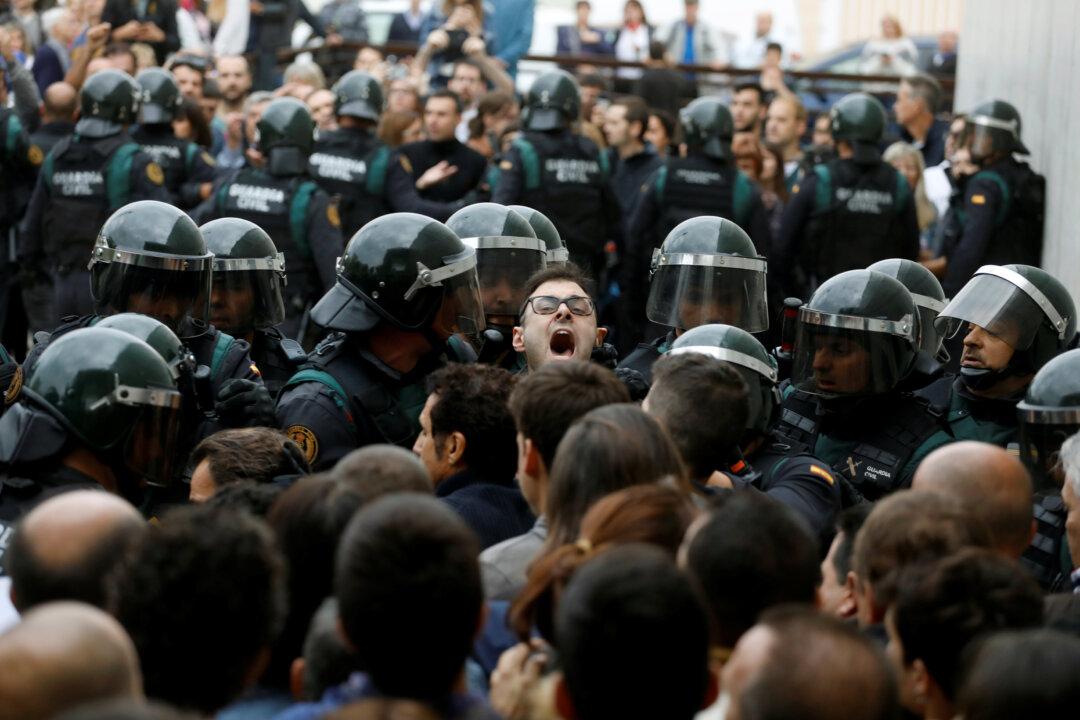BARCELONA—Spanish police used batons and rubber bullets to thwart an independence vote in Catalonia on Sunday in a show of force that left hundreds injured, according to Catalan officials, and presented Madrid with a huge challenge to calm tensions in the region.
Prime Minister Mariano Rajoy, who had declared the vote illegal, said amid one of Spain’s biggest political crises in decades that he would call all-party talks to “reflect on the future”, but dialogue over Catalonia would be “within the law”.





